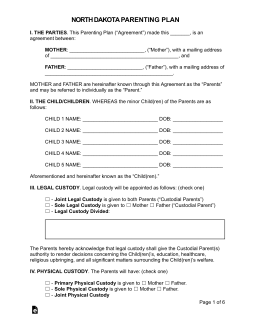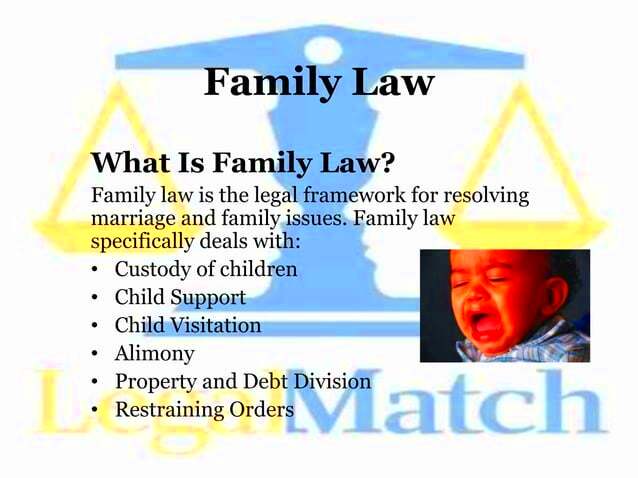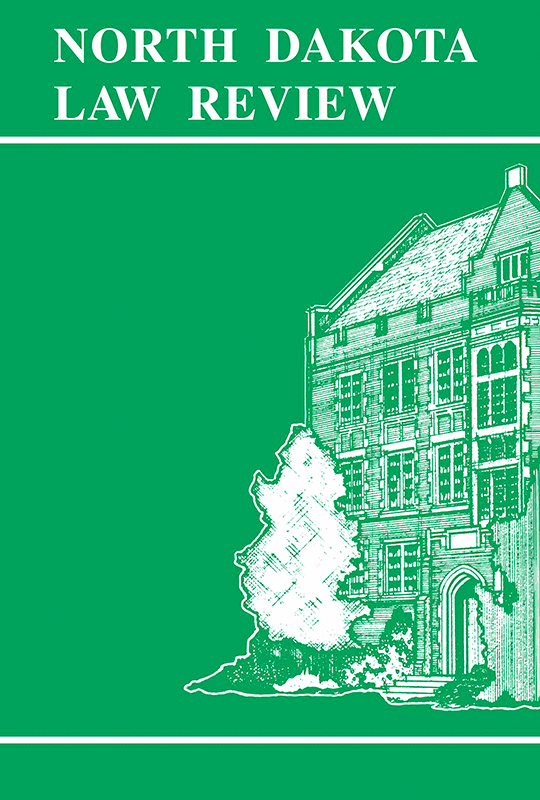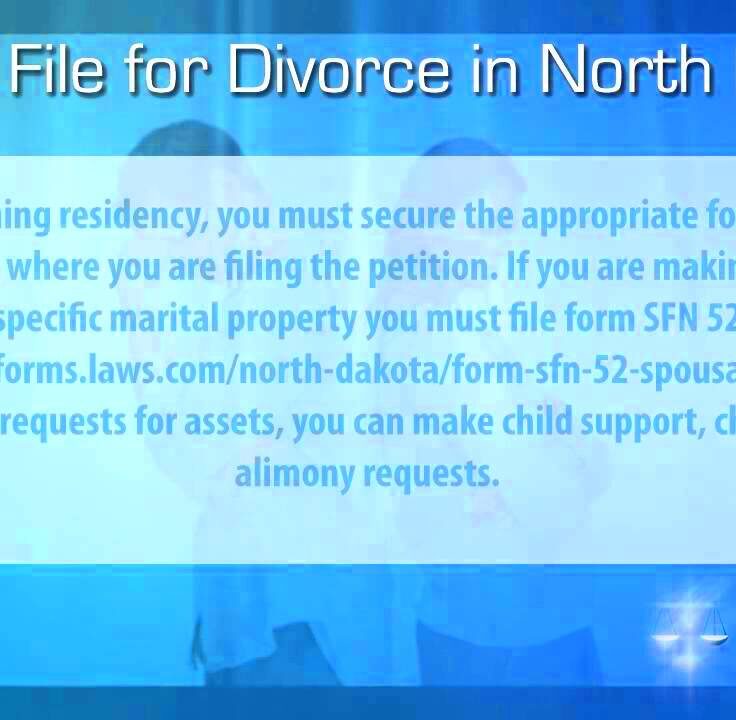North Dakota Family Law Explained
North Dakota Family Law covers various legal issues that affect families, including marriage, divorce, child custody, and support. This area of law is designed to protect the rights and welfare of individuals involved, particularly children. Navigating these laws can be complex, so understanding the basics is essential for anyone facing family law matters in North Dakota.
Understanding Divorce in North Dakota

Divorce in North Dakota can be an emotional and challenging process. Here are some key points to consider:
- No-Fault Divorce: North Dakota is a no-fault divorce state, meaning you don’t need to prove wrongdoing to file for divorce. You simply need to state that the marriage is irretrievably broken.
- Residency Requirement: At least one spouse must have lived in North Dakota for six months before filing.
- Filing Process: You initiate a divorce by filing a complaint in the appropriate district court. Both spouses are required to exchange financial information.
- Division of Assets: The court will divide marital property equitably, which doesn’t always mean equally.
- Legal Representation: While it’s possible to represent yourself, having an attorney can help you navigate the complexities of the law.
Understanding these aspects can help you prepare for the divorce process and make informed decisions.
Child Custody and Visitation Rights

Child custody in North Dakota focuses on what is best for the child. Here’s an overview:
- Types of Custody: There are two main types of custody: legal and physical. Legal custody involves decision-making rights regarding the child’s upbringing, while physical custody refers to where the child lives.
- Joint Custody: North Dakota encourages joint custody arrangements, where both parents share responsibilities and time with the child.
- Visitation Rights: If one parent has primary custody, the other parent typically has the right to visitation. This schedule can be negotiated between parents or ordered by the court.
- Factors Considered: Courts consider several factors when determining custody, including the child’s age, the parents’ living situations, and the child’s relationship with each parent.
It’s crucial for parents to communicate openly and prioritize the child’s well-being during custody arrangements. Understanding your rights and responsibilities will help create a positive environment for your child.
Child Support Guidelines

Child support in North Dakota is designed to ensure that children’s needs are met following a divorce or separation. Understanding how child support is calculated can help parents navigate this important issue. Here’s what you need to know:
- Calculation Formula: North Dakota uses an income shares model, which takes into account both parents’ incomes and the amount of time the child spends with each parent. This formula helps determine a fair support amount.
- Basic Support: The basic support obligation covers essential expenses, including food, clothing, and shelter. Additional expenses may include medical costs, child care, and educational expenses.
- Income Considerations: When calculating support, the court considers both parents’ gross incomes, including wages, bonuses, and other sources of income.
- Adjustments: The support amount can be adjusted for special circumstances, such as significant medical expenses or a change in income.
- Enforcement: If a parent fails to pay child support, the state has various enforcement options, including wage garnishment and withholding tax refunds.
Understanding these guidelines can help ensure that children receive the financial support they need for a stable upbringing.
Property Division in Divorce

When a marriage ends, dividing property can be one of the most contentious issues. North Dakota follows the principle of equitable distribution, meaning assets are divided fairly but not necessarily equally. Here’s a breakdown:
- Marital vs. Non-Marital Property: Marital property includes assets acquired during the marriage, while non-marital property includes assets owned before marriage or received as gifts or inheritances.
- Factors Influencing Division: The court considers several factors when dividing property, including:
- Length of the marriage
- Age and health of each spouse
- Contributions to the marriage (financial and non-financial)
- Economic circumstances at the time of division
- Debt Division: Debts incurred during the marriage are also divided. Both spouses may be responsible for shared debts.
- Negotiation: Couples can negotiate property division through mediation, which can be less adversarial and often leads to a more amicable settlement.
Understanding how property division works can help you prepare for negotiations and ensure a fair outcome.
Legal Separation and Its Implications
Legal separation is an alternative to divorce in North Dakota, allowing couples to live apart while remaining legally married. This arrangement can have various implications:
- Process: To obtain a legal separation, one spouse must file a petition in court, similar to filing for divorce. The court will issue a separation agreement detailing the terms.
- Separation Agreement: This agreement can cover child custody, visitation, child support, and property division, providing a framework for the couple during their separation.
- Benefits: Legal separation allows couples to address their issues while maintaining their marital status. It can be a good option for those considering reconciliation or for religious reasons against divorce.
- Impact on Finances: During separation, spouses may need to manage shared expenses and debts, which can be challenging. Understanding financial responsibilities is crucial.
- Conversion to Divorce: If reconciliation doesn’t occur, couples can convert their legal separation into a divorce without starting the process from scratch.
Understanding the implications of legal separation can help couples make informed decisions about their relationships and future.
Protective Orders and Domestic Violence
Protective orders play a crucial role in addressing domestic violence in North Dakota. If someone feels threatened or has experienced abuse, understanding protective orders can provide safety and support. Here’s what you need to know:
- Definition of Domestic Violence: Domestic violence can include physical harm, threats, intimidation, or emotional abuse by a partner or family member.
- Types of Protective Orders: North Dakota offers different types of protective orders:
- Emergency Protective Order: This is a temporary order that can be issued quickly, often without the abuser being present.
- Temporary Restraining Order: This order lasts longer than an emergency order and usually requires a court hearing.
- Permanent Protective Order: After a court hearing, a permanent order can be issued, lasting for one year or more.
- How to Obtain a Protective Order: To file for a protective order, an individual must complete necessary forms and file them at their local court. A hearing is often scheduled to assess the situation.
- Violation Consequences: Violating a protective order can lead to serious legal consequences, including arrest and criminal charges.
It’s essential for individuals facing domestic violence to seek help and understand their rights. Resources such as shelters and hotlines are available to provide support.
Frequently Asked Questions
As you navigate North Dakota family law, you may have several questions. Here are some frequently asked questions to help clarify common concerns:
- What is the difference between legal separation and divorce? Legal separation allows couples to live apart while remaining married, whereas divorce ends the marriage.
- How is child custody determined? Child custody decisions are based on the child’s best interests, considering factors like the child’s age, parental relationships, and living conditions.
- Can child support amounts be modified? Yes, child support can be modified if there are significant changes in circumstances, such as job loss or a change in the child’s needs.
- What if my spouse refuses to pay child support? The state has enforcement mechanisms, including wage garnishment and other legal actions to ensure support payments are made.
- Are protective orders permanent? Protective orders can be temporary or permanent. Permanent orders are issued after a court hearing and can last for one year or longer.
These FAQs can help provide clarity and guide individuals in making informed decisions related to family law matters.
Conclusion on North Dakota Family Law
Understanding North Dakota family law is essential for navigating issues like divorce, child custody, and protective orders. Knowledge of these laws can empower individuals to make informed decisions and advocate for their rights. Remember:
- Seek legal advice when dealing with complex issues.
- Prioritize the well-being of children in custody and support arrangements.
- Don’t hesitate to reach out for help if you are facing domestic violence or need support navigating family law matters.
By familiarizing yourself with these aspects of family law, you can better prepare for challenges and work towards a positive outcome in your family situation.


